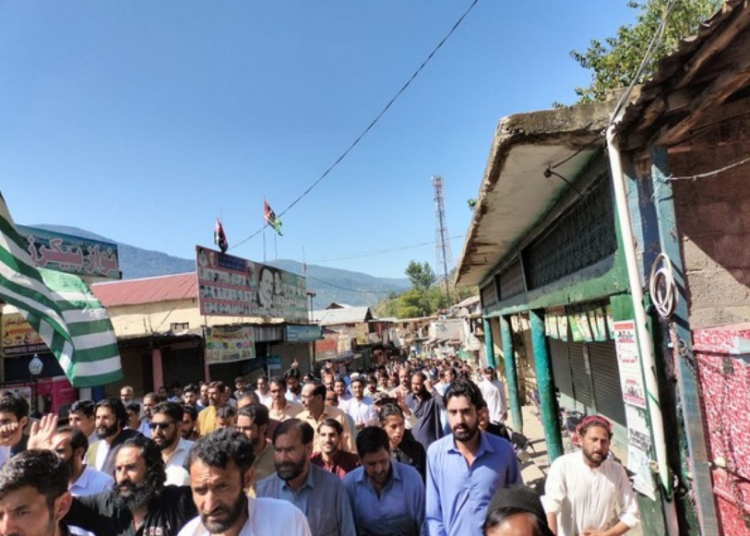Introduction: Pakistan-Occupied Kashmir (PoK) has been marred by a shutter-down strike and wheel jam protest as citizens rally against high inflation and unlawful taxes imposed on electricity bills. The protests have intensified, with major cities like Muzaffarabad, Mirpur, Rawalakot, and Kotli witnessing closed shops and locals participating in protest marches. Demonstrators voiced their grievances against the Pakistani government through slogans and expressed their discontent with the oppressive billing system.
Rising Discontent and Protest Slogans: The protesters chanted slogans like “Riyasat Hamari – Kabza Tumhara – Namanzoor Namanzoor” (Our land – your ownership – unacceptable unacceptable) and “Gundagardi nahi chalege” – State (sponsored hooliganism not acceptable). The region’s populace is deeply concerned about the harsh conduct of security forces, human rights violations, and the forceful detention of political activists.
Dependency on Pakistan for Basic Needs: Despite PoK’s abundant natural resources and electricity generation capacity, its residents remain reliant on Pakistan to fulfil their basic energy requirements. For more than seven decades, Pakistan has exploited the resources of PoK and Gilgit Baltistan without providing adequate benefits in return. The appeals and pleas of locals to the authorities have consistently gone unanswered, leading to growing frustration.
Civil Disobedience Movement: PoK activist Amjad Ayub Mirza noted that the protest against electricity bill taxes has evolved into a full-fledged civil disobedience movement. He emphasized that this movement has been ongoing for several months, with people setting up protest camps. In these camps, individuals are encouraged not to pay their electricity bills due to the heavy taxes imposed. As a result, many citizens have taken to the streets to burn their electricity bills in mass demonstrations.
The protests in PoK reflect the growing discontent among the population as they demand their rights and voice their opposition to oppressive policies and taxation. The strike and demonstrations serve as a poignant reminder of the challenges faced by the people in the region.








 India
India












